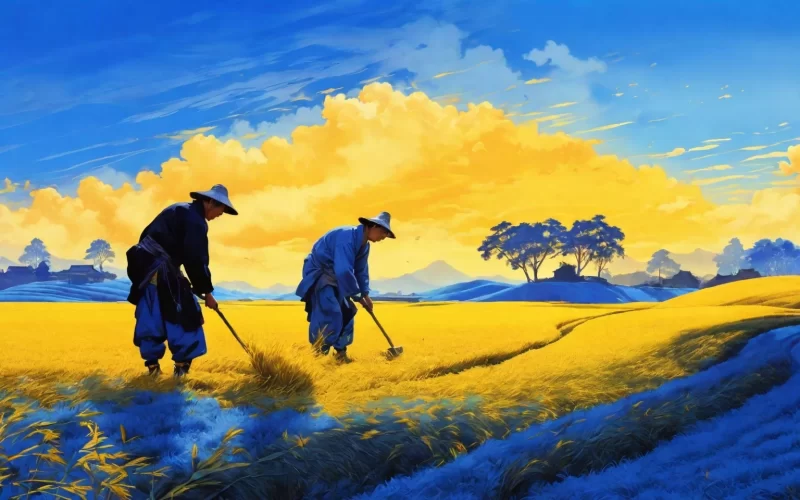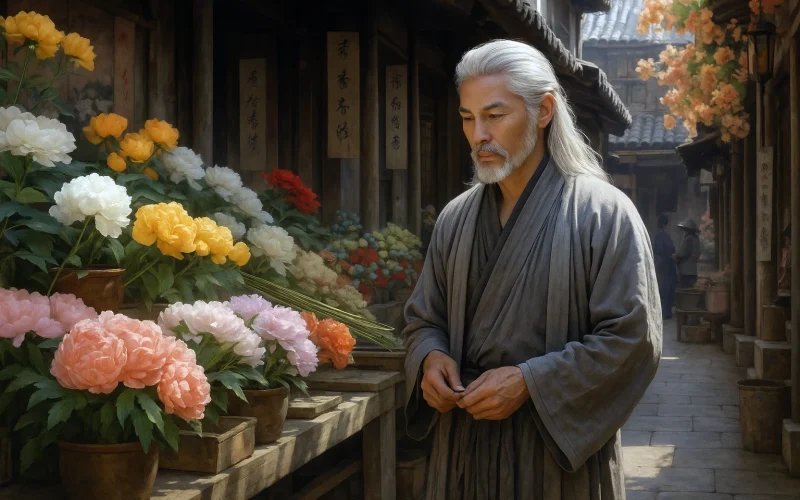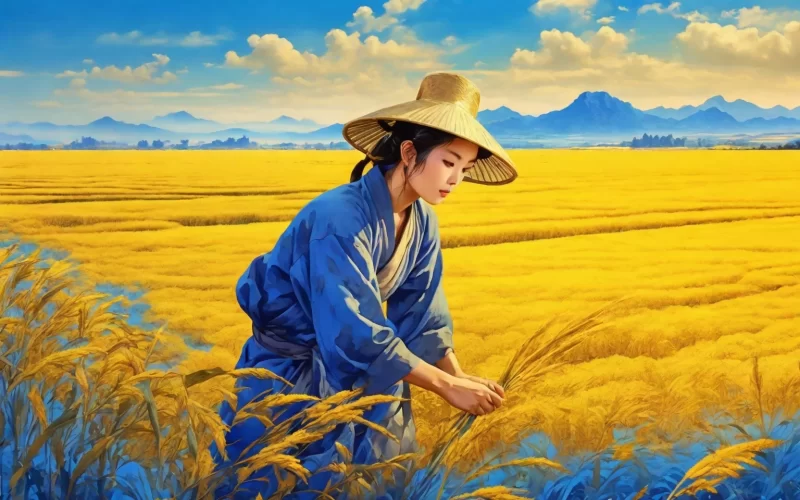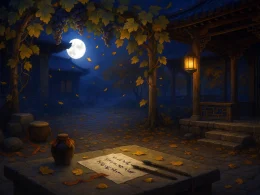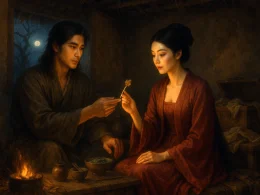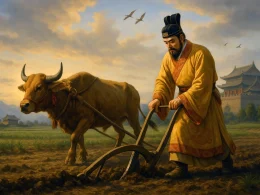Each seed when sown in spring,
Will make autumn yields high.
What will fertile fields bring?
Of hunger peasants die.
Original Poem
「悯农 · 其一」
李绅
春种一粒粟,秋收万颗子。
四海无闲田,农夫犹饿死。
Interpretation
Composed during the mid-to-late Tang Dynasty amid relentless warfare and oppressive taxation, this poem lays bare the struggles of peasants under an unjust social system. Li Shen, a scholar-official who witnessed their suffering firsthand, channels agrarian despair into these stark verses. Through deceptively simple language, "Sympathy for the Peasants" (《悯农》) becomes a piercing indictment of systemic exploitation.
First Couplet: "春种一粒粟,秋收万颗子。"
Chūn zhòng yī lì sù, qiū shōu wàn kē zǐ.
A single grain sown in spring's embrace, Yet autumn yields ten-thousand seeds' grace.
The couplet's agricultural arithmetic initially suggests nature's benevolence. The hyperbolic "ten-thousand seeds" magnifies both earth's fertility and the backbreaking labor required to unlock it. Beneath the pastoral surface, the poet plants subtle irony - such abundance should guarantee prosperity, making the subsequent revelation more devastating.
Second Couplet: "四海无闲田,农夫犹饿死。"
Sìhǎi wú xián tián, nóngfū yóu è sǐ.
No field lies fallow under heaven's dome, Yet peasants starve in their own home.
The brutal payoff: universal cultivation ("no fallow field") coexists with universal hunger. The monosyllabic punch of 犹饿死 ("still starve to death") delivers the poem's moral lightning bolt. By juxtaposing total land use with total deprivation, Li Shen exposes the cruel paradox of feudal economics - those who create wealth cannot partake in it.
Artistic Features
Li Shen constructs a striking social paradox through just four concise lines. His masterful use of dual contrasts—temporal ("spring sowing" vs. "autumn harvest") and spatial ("all under heaven" vs. individual "peasants")—creates a narrative arc from hope to despair, amplifying the work's critical power. The devastating final phrase "still starve to death" strikes with visceral immediacy, transforming statistical tragedy into human anguish. This minimalist approach achieves maximum emotional and ideological impact through calculated verbal economy.
Holistic Appreciation
This poem stands among Tang poetry's rare unflinching indictments of systemic injustice. Li Shen's surgically precise language exposes the cruel paradox of abundance alongside starvation, dismantling pastoral romanticism to reveal agriculture's brutal reality. Rather than celebrating rural idylls, his clinical tone dissects the fundamental injustice of "labor without reward." Its unambiguous message and authentic compassion make this a landmark of classical realism, influencing generations of socially engaged poetry.
Insights
Beyond documenting Tang agrarian suffering, the poem remains a timeless warning about distributive justice. Its contemporary resonance lies in recognizing that any society permitting exploitation of laborers undermines its own foundations. Li Shen's poetic activism—giving voice to the voiceless through artistic witness—exemplifies the intellectual's moral duty. The work challenges modern readers to consider how economic systems honor or betray those who feed nations.
Poem translator
Xu Yuanchong (许渊冲)
About the poet
Li Shen (李绅), 772 - 846 A.D., Tang Dynasty chancellor and poet, was a native of Qiao Cheng (谯城), Bozhou City (亳州市), Anhui Province (安徽省). The most glittering part of his life was in poetry, and he was a participant in the New Music Movement, which had a great impact on the history of literature.






